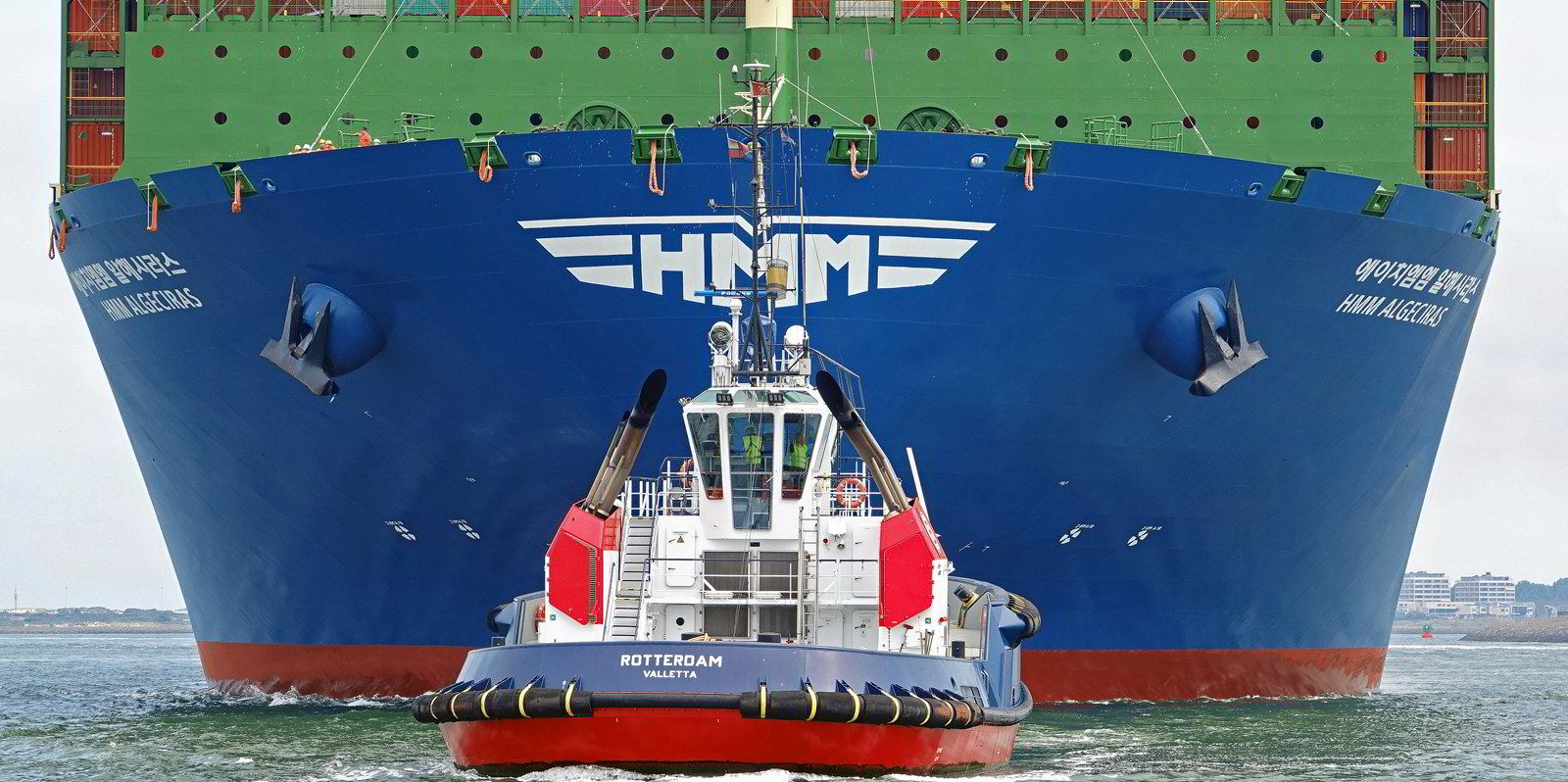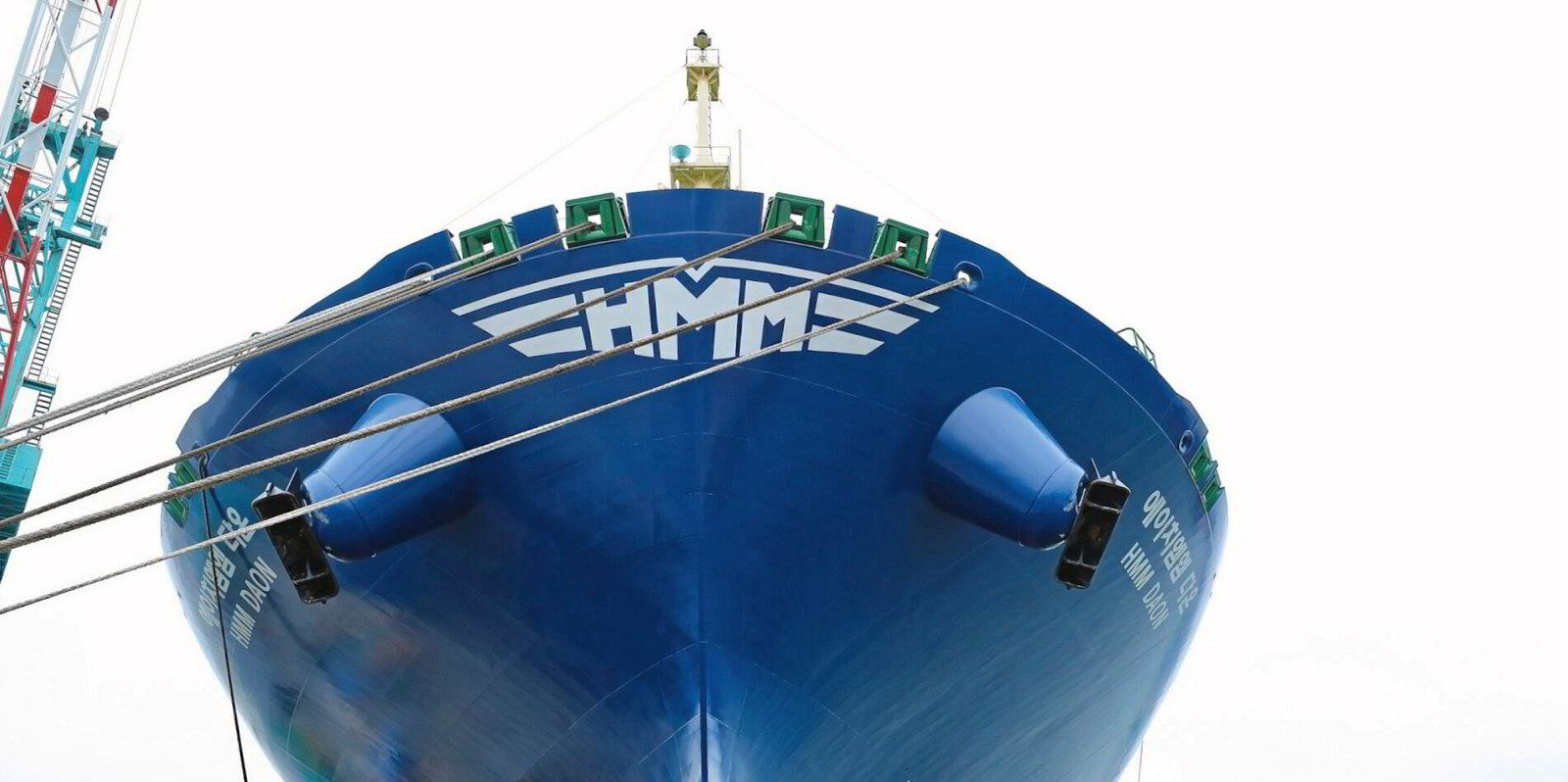Hapag-Lloyd is said to be showing an interest in taking over South Korean flagship carrier HMM, in a further sign of consolidation within the liner market.
According to local media reports, the German liner operator is said to have requested a prospectus from Samsung Securities, which is handling the HMM sale.
Hapag-Lloyd is said to have hired Goldman Sachs as its consultant to evaluate and advise on the acquisition price of HMM and potential business synergies.
The acquisition would help to expand Hapag-Lloyd’s liner business in Asia and reinforce its position as the fifth-largest global liner company.
Hapag-Lloyd currently has a fleet capacity of 1.88m teu, or a 6.9% market share, just ahead of Ocean Network Express and Evergreen, which both have market shares of 6.1% each, according to Alphaliner’s top 100 container lines.
HMM sits in eighth place with capacity of 790,342 teu and a 2.9% market share.
The buyout would also see Hapag-Lloyd diversify into the tanker and dry bulk sectors.
The bidding date for HMM closes on 21 August and it is not known if Hapag-Lloyd has submitted an offer.
Five companies have already shown an interest in acquiring HMM: LX Group, Samra Midas Group, Harim Group, Dongwon Group and Global Sae-A.
Hapag-Lloyd and HMM are partners in THE Alliance, which comprises Yang Ming Marine Transport and ONE.
State-owned Korea Development Bank and Korea Ocean Business Corp are the two largest shareholders in HMM with stakes of 20.69% and 19.96%, respectively, and hold KRW 1trn ($746.55m)-worth of the liner company’s 2.7trn convertible bonds. The total estimated sale price is about KRW 5trn.
In March, HMM made a comeback in the car carrier sector by ordering three LNG dual-fuelled, 8,600-ceu pure car/truck carrier newbuildings against long-term charter contracts from Hyundai Glovis.
As South Korea’s national carrier, analysts say the sale of HMM to a foreign buyer could prove difficult.
When multiple foreign companies competed in a preliminary bid for Hyundai LNG Shipping a few months ago, authorities from South Korea’s shipping sector and the government opposed the sale to a non-South Korean buyer.





